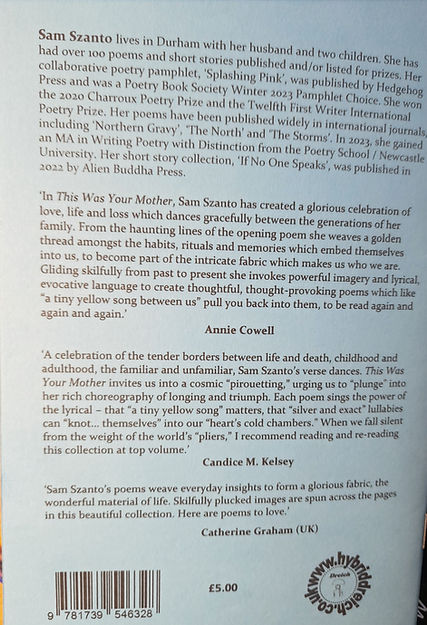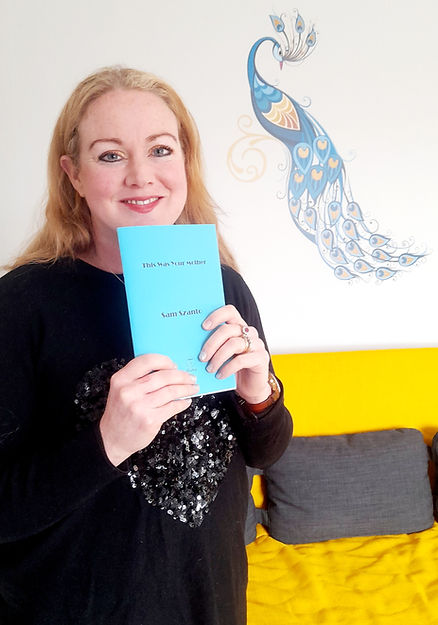top of page
This Was Your Mother

Dreich Press (2024)
'Sam Szanto has created a glorious celebration of love, life and loss'
'Gliding skilfully between past and present sne invokes powerful imagery and lyrical, evocative language.'
Annie Cowell
'I recommend reading and re-reading this collection.'
Candice Kelsey
'Here are poems to love'
Catherine Graham (UK)
To purchase a copy from Sam, email sam.szanto@gmail.com - Two copies left!
A review by Peter Mladinic was published in Tears in the Fence Literary Journal.
Full review here: https://tearsinthefence.com/2024/04/06/this-was-your-mother-by-sam-szanto-dreich/



Widget Didn’t Load
Check your internet and refresh this page.
If that doesn’t work, contact us.
bottom of page


